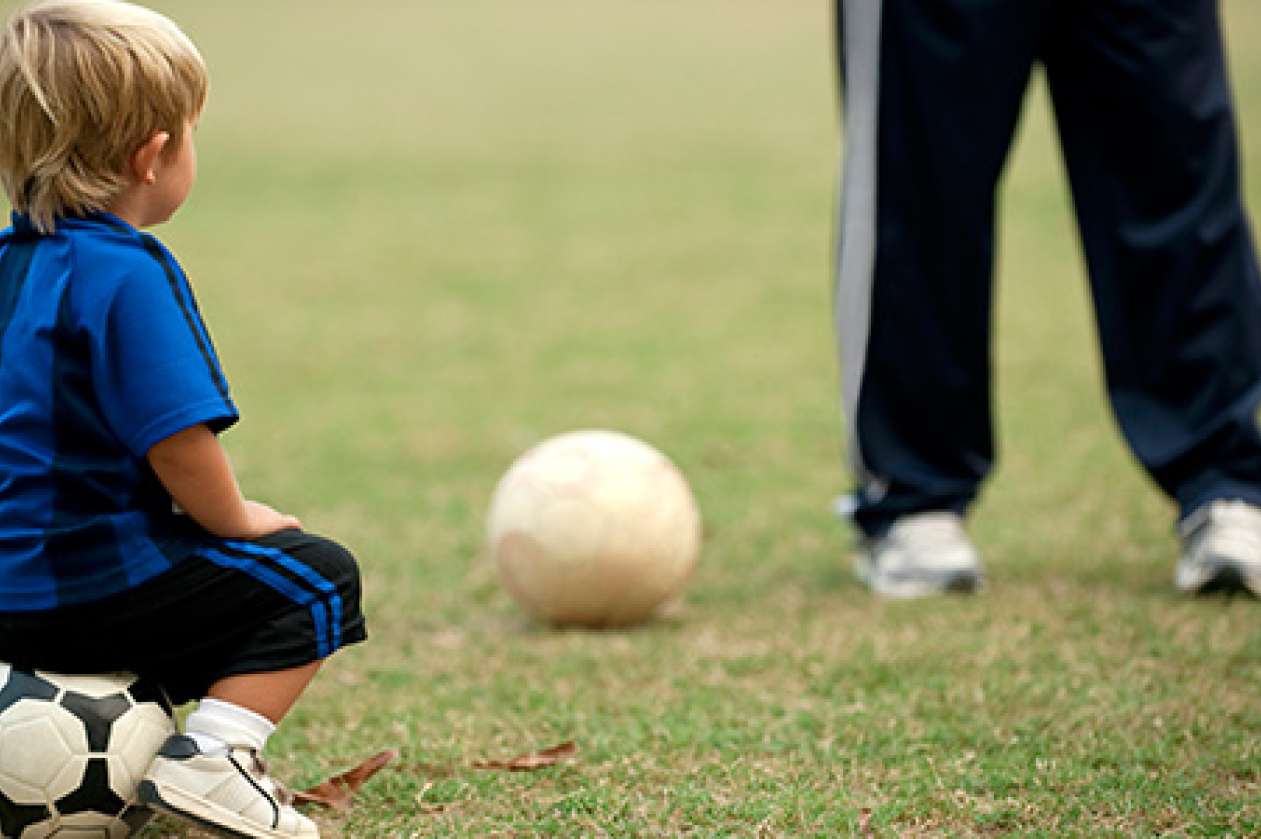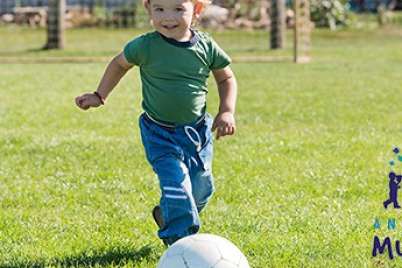
5 ways to keep kids playing sports
Editor’s note: Two of the most consistently popular articles on our site are “Why kids quit sports” and “Top 5 reasons kids play sports“. We wanted to publish the below article that delves deeper into this important topic and offers solutions to parents that keep all our kids playing.
“I just can’t take it anymore, coach,” a talented but under-performing player named Kate told me a few years back. “I think I am done playing.”
My mind went through all the reasons this might be happening: burnout, other interests, team dynamics, I was too hard on her. The gamut. What could it be?
“It’s my dad. He loves me and I know he only wants the best for me, but he just can’t stop coaching me, in the car, and from the sideline each and every game. I can’t play when he is around, and he insists on coming to every game, every road trip, you name it. It’s like it’s more important to him than it is to me.”
Guest post by John O’Sullivan
John founded the Changing the Game Project in 2012, which promotes a child-centred approach to youth sport. The author of the book, Changing the Game, John is a training centre director for the Major League Soccer Portland Timbers. Follow John on Twitter, Facebook, or read more at his blog.
Sadly, Kate’s story is a common one. It is a tale about well-intentioned parents who want nothing but the best for their children. They love their kids; they just don’t always love them in a helpful way.
70 percent of children are dropping out of organized sports by the age of 13. Whenever I mention this sad statistic, people come out of the woodwork saying that it’s only the kids who aren’t good enough to play that quit. They say it’s an age where school, jobs, and other interests take precedence. These things are true and contribute to a part of the dropout rate, but they are not the entire picture.
Sadly, in our current state of youth sports, kids and families are asked to do more and more at younger and younger ages, especially the kids who show early aptitude in a sport. Many of these athletes, our most dedicated and talented ones, burnout and drop out as well.
We don’t simply lose the kids who cannot make varsity; we lose many of the best athletes on our teams
If you are a parent or a coach, I believe it is critical that we have a good understanding of why kids play, and why they quit. It is also crucial that we have open lines of communication with our athletes, so we can spot some of the red flags and right the ship before it’s too late.
I believe there are five main reasons kids walk away from sports, and they all boil down to one common denominator: they cause kids to have a poor state of mind when it comes to sports. I hope you will look at each one of these scenarios and ask yourself, “Is this my child?” If the answer is yes, then it is never too late to act and make a change.
1. It’s no longer fun
The number 1 reason kids quit is because sports is no longer fun. In a 2014 study for George Washington University, researcher Amanda Visek interviewed numerous youth athletes and asked them why they played sports, and 9 out of 10 said the #1 reason they played was because it was fun!
The children in the George Washington study defined fun as trying their best, being treated respectfully by coaches, parents, and teammates, and getting playing time. They listed eighty-one characteristics of fun, and winning (#48), playing tournaments (#63) and practicing with private trainers (#66) did not appear high on the list.
If your young athletes are not having fun, they will eventually walk away, regardless of talent or how good their team or coach is. Adults rarely do voluntary activities such as exercise or community service work that they do not derive enjoyment from. Why do we think our kids will?
Solution: Your athletes are never too old, or too talented, to answer the question “Are you enjoying yourself out there?” Ask it! Chances are, the more they enjoy themselves, the better they play, the more they play, and the harder they will work. Michael Jordan had a “love of the game” clause in his professional basketball contracts, allowing him to play pickup whenever he wanted to, because he enjoyed playing so much. It has to be fun! And if it stops being fun, you need to figure out a way to make it fun, or before you know it … early retirement!
2. They have lost ownership of the experience
I believe that one huge factor that makes sports less fun and leads children to pursue other interests over sport is loss of ownership of the experience.
Just like the story of Kate above, millions of kids leave sports and look for a place where their every action and every mistake is not scrutinized by an adult. That is not to say there is not a place for coaching or teaching; but good coaching does not take away autonomy. If you doubt this, then ask yourself, “Why does the average teenage boy play 17 hours of video games a week?” A big part of that “why” is there is no one standing over his shoulder critiquing every move, and demanding that he entertain them.
If you find yourself saying “we struck out ten batters” or “we scored three goals” you have not allowed your child to own the experience. If you find yourself coaching your child on every play from the sideline, and telling him to “shoot,” “dribble,” or “pass” instead of letting him make his own decisions, you’re not helping. You are stealing ownership of the experience from your child, and in the process sucking out the enjoyment. If we wouldn’t enjoy having our boss stand over our shoulder and critique everything we do at work, then why do we think it helps our young athletes?
It doesn’t.
Solution: Accept your child’s goals for playing sports (get my parent-child goal setting sheet and watch my video on goal setting ).
Help them find their passion, instead of trying to determine it for them. When you are watching your kid’s games, either cheer positively after a play or say nothing at all. Never yell at the referee. If you don’t know what to say, ask your child. You might be surprised at the answer.
3. They don’t get playing time
If kids are on a team, and they never get to play meaningful minutes or get pulled out after every mistake, they are going to quit. Kids want to play. Kids need to play. It matters little to them how good their team is, or how famous their coach is, if they never get in and contribute to the team. A study by the Josephean Institute found that 90 percent of children would rather play on a losing team then sit on the bench on a winning team.
Our overemphasis on winning at younger ages is creating an all-star culture in elementary school sports that no longer allows children to develop at their own pace. When coaches focus solely on wins and losses, and only play the kids who will help the team win today, coaches drive so many kids out of sports who in the long run would ultimately be better players. If major league manager Mike Matheny can find playing time at all positions for his youth baseball team, you can too.
Solution: Coaches, if you pick them, you need to play them, especially at the youngest age groups.
And parents, if your child is on a team but never plays meaningful minutes despite coming to all practices and games, ask your child if they are unhappy. If they are, find another team when your commitment is over. The college and professional sports world is full of athletes who were not star players at age 11; many of them were even on the dreaded “B” team. But they got to play, and as a result, they developed athletically, and grew to love the game. No youth trophy is worth not playing.
4. They are afraid to make mistakes
Kids tell us that one of the main reasons they quit is because they are afraid to make mistakes, because they get criticized, yelled at, benched, and more. Great players develop in environments where they do not fear mistakes, where they are encouraged to try and fail, and they are made to understand that failure is a necessary part of the development process. Coaches and parents who keep a running commentary going on the sideline, second guessing every decision and action players take, and yelling at players for trying their best and failing, create a culture of fear that drives players out of the game.
Solution: Embrace failure and risk-taking in young athletes.
Instead of only praising the result of a successful action, start praising what kids do immediately after a mistake. Do they hustle and get the ball back? Do they keep trying to beat their player 1v1? Praise the reaction to failure, and create a safe-to-fail environment.
5. They feel disrespected
In the 2014 George Washington study, children listed the top five characteristics of a great coach, and “Respect and Encouragement” came in at number 1. I have never met an adult who enjoys being disrespected by his or her friends, family, or co-workers. But go to any sports match and you see numerous examples of children who are being disrespected because they made a bad pass, or missed a shot. I see ridiculous shows like “The Short Game” in which 7-year-old golfers are hounded by their caddy-daddy after chunking the same chip that a PGA pro chunked on the weekend.
Sports can be really hard. It takes thousands of hours and years of practice to become proficient, yet we expect our 9-year-old soccer players to make the right decision every time, and our 11-year-old baseball players to never make an error. When they make mistakes, many coaches and parents treat their athletes in a way that they would never allow a teacher to treat their kids, or their own boss to treat them. We would never allow kids to come to our sporting events and treat us like we treat them, right?
Solution: Follow the Golden Rule: Do unto others as you would have them do unto you.
Respect the effort, focus, and courage it takes for a child to play sports in our “youth sports as entertainment” culture. Give them the respect they have earned simply for being in the arena. Treat them with the same respect you would demand that you be treated with.
Today in the U.S. and around the world, statistics show that over 70 percent of children drop out of organized sports by the age of 13. This, in an age when nearly a third of children in the U.S. are classified as overweight or obese, is a travesty.
The adults involved in youth sports, be they parents, coaches, or administrators, have the responsibility to create an environment that serves the needs, values, and priorities of the kids, and not just the adults. 70 percent of children are telling us by quitting that we are failing them.
But we can make a change. We can help our kids find great sporting environments, and keep them in the game. We can do this by communicating better with our kids, asking them what they want out of the experience, and then letting that experience belong to them.
We can do this by treating them with the respect they deserve, and letting them fail in order to learn and develop.
We can do this by letting all kids have a safe environment to play.
A 70 percent failure rate may earn you millions of dollars in professional baseball, but it is not serving our kids in youth sports.
Let’s change the game, and we all will benefit!






You made a good point that making my child accept the risk of failure can help him be more motivated to take up sports. When my son was a kid he always used to talk about wanting to play baseball someday. I hope that he gets to join a high school baseball club next school year in order to stay active while he is still young.
Thank you for reminding me that as parents, we should always accept our child’s reasons and goals for playing their chosen sports and be supportive of it. If I’m being honest about it, there’s no word available to describe my reaction when my daughter told me that she wanted to pursue baseball. Instead of telling her that she shouldn’t engage in any physical activity, your article made me realize that I should just cheer her on and don’t say anything bad about her interest. I’ll consult my husband and see if we could enroll her in a baseball coaching center.
My son just quit gymnastics at age 9 (just turned 9). He was state champ last season and 5th at regionals. This summer we got a new head coach. He hasn’t put forth the effort and continues to goof off and get in trouble for not doing what he is supposed to be doing. The coach has tried conditioning, talking to him, setting him out. I actually started volunteering there because I have experience and thought I could help the new head coach. But it just got worse with him. And if I sat him out, he never comes back in motivated. His attititude gets worse. During the end of practice yesterday, I had to sit him out again. Then after practice I talked to him outside and said I won’t be mad if you tell me you want to quit and do something else. He usually would say no but this time he said yes. I didn’t get a reason why yet. He went home with his mom and I went home feeling horrible (His mom and I are divorced but share 50/50 custody). Got home and broke down seeing all his medals that he earned the last two years covering his bunk bed. He even won the Bart Connor award last season. He achieved so much and I fee like he’s just going to throw it all away. He is super talented and I mean super talented at gymnastics. He has been practicing for level 6 which is 4 days a week at 4 hours per session. The other kids his level and his age do not have the same problem as him. Or definitely not as bad or carry the bad attitude as long as he can. I have not been able to talk about his other options but if he were to repeat level 4, his practice would only be 3 days a week for 3 hours a day. He has told his mom that he wants to spend more time with his family, but what I think he is really saying is that he wants to play more. So……I do not know what to do. I hate that he wants to quit something he’s been winning at, but I also do not want to force him to do it. I want him to quit for the right reasons, not the wrong ones.
Hi Bert,
Unfortunately, while I realize it was no doubt a safety concern, sitting your son out probably embarrassed him, and that would explain why he came back less motivated. My advice in future would be simply to take him aside quietly, explain the safety issues, give him a quiet warning in his ear that you might need to sit him out if he doesn’t stop goofing off. Then he has a heads up and can make a choice (which can still be hard for a 9 year old given brain development at that age). If he still goofs off, then quietly and peacefully remove him for the rest of the session.
Many highly talented kids quit sports for all sorts of reasons. If your divorce took place recently, this could be a big factor. Has your son had a chance to speak with a counsellor yet? This could be a good place to start. Even if your divorce happened 5 years ago, it could still be a major factor.